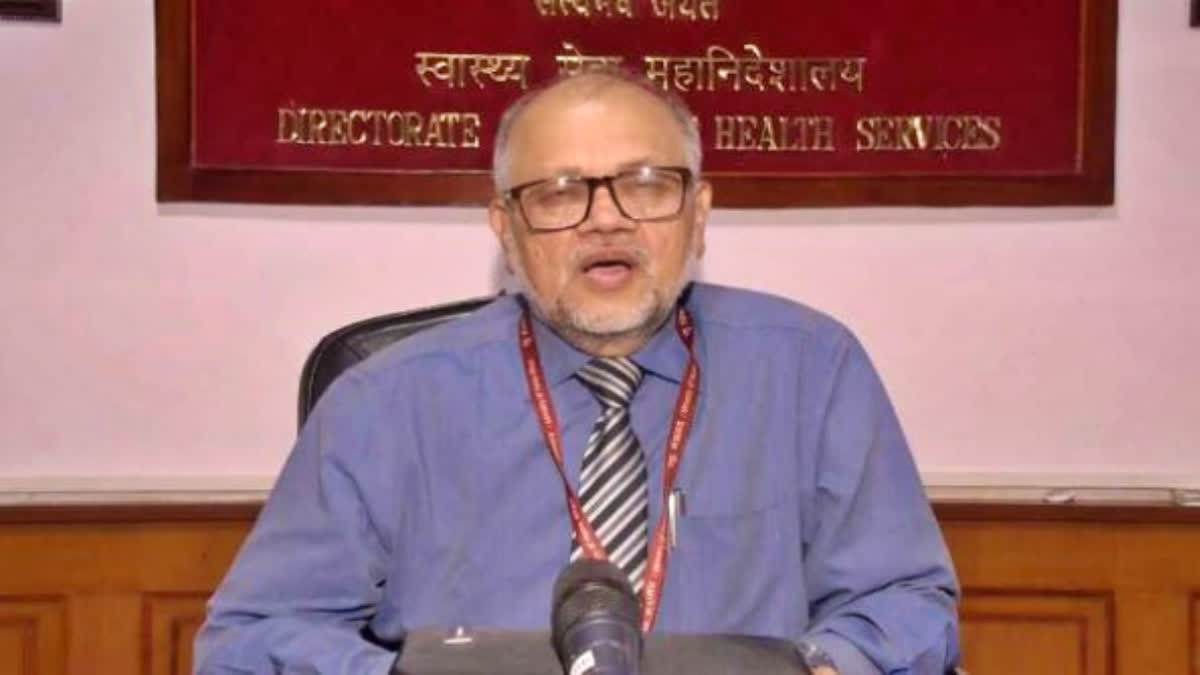New Delhi: As the World Health Organization (WHO) has declared Mpox a public health emergency of international concern, Director General Health Services (DGHS) Dr Atul Goel says there was no need to panic as the risk of a large spread of this disease was unlikely in India.
On August 14, WHO declared Mpox a global health emergency given its prevalence and spread across many parts of Africa. Following it, India also took measures to ensure it was ready to deal with the situation if any cases surfaced in the country.
Mpox is a self-limiting viral illness which lasts for 2-4 weeks, with most patients recovering through supportive measures. The disease spreads due to prolonged close contact with an infected person or direct contact with body fluids, lesion material or contaminated items like clothing or linens.
The symptoms are fever, headache, muscle aches, body aches, malaise, lymphadenopathy, chills, sore throat and cough. The other symptom is that a rash appears within 1-2 days of fever onset, lasting 2-4 weeks.
MPOX 🚨
— PIB India (@PIB_India) August 21, 2024
▶️ #Mpox is a viral illness that can be managed with supportive care. Learn how it spreads, recognize the symptoms, and follow these prevention tips
Here is what you need to know!👇#MpoxAwareness @MoHFW_INDIA @MIB_India
(1/4) pic.twitter.com/9ckAlejt6w
"There is no need to panic. So far India has not reported a case. The assessment by the Joint Monitoring Group...NCDC is that the risk of a large spread in India is unlikely as of now. We will take it forward on a case-to-case basis if we have cases. We have alerted our points of entry for certain individuals who might report these cases, and then they may be referred to designated hospitals. We have asked states to set up designated institutions for isolation and management of such cases," DGHS Dr Atul Goel said on Tuesday.
Earlier this week, Dr P K Mishra, Principal Secretary to Prime Minister Narendra Modi, chaired a high-level meeting to review the status of preparedness for Mpox in the country and related public health measures. A spokesperson said that Prime Minister Modi was continuously monitoring the Mpox situation.
Dr Goel said that from January this year, WHO has reported that the Democratic Republic of Congo had about 16,000 suspected cases of which about 2,500 were confirmed, and there have been approximately 500 deaths.
"They (WHO) declared it a public health emergency of international importance after Sweden reported a positive confirmed case...this clade is more infective than the previous clade and has got a greater mortality. As far as transmission is concerned, it is close skin contact and also sexual exposure. Occasional cases have been reported due to respiratory secretions but it is not very infective and that has to be very close respiratory association," he said.
As far as symptoms are concerned, Dr Goel said after a duration of 5 to 21 days, there may be a fever for 1 to 3 days followed by skin rashes on the face, hands or genital area. "These rashes are papillar, to begin with, begin vesical which are fluid-filled and can become infected. Diagnosis is made by collecting fluid from these rashes and sending it to RTPCR., The disease is self-limiting, there is no drug available. 97 to 98 per cent of cases subside, and they heal within a period of 3 to 4 weeks," he said.
As per WHO, globally since 2022 from 116 countries, 99,176 cases and 208 deaths had been reported due to Mpox. Subsequently, they have reported that Mpox cases have been steadily increasing in the Democratic Republic of Congo. Last year, the reported cases increased significantly, and already the number of cases reported so far this year has exceeded last year’s total, with more than 15, 600 cases and 537 deaths. Since the 2022 declaration of a Public Health Emergency of International Concern by WHO, 30 cases were reported in India. The last case of Mpox was detected in March 2024, but no case of the new clade has been detected so far. Presently, there are 32 labs in India equipped for testing mpox.
Read More



